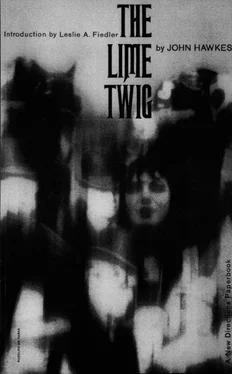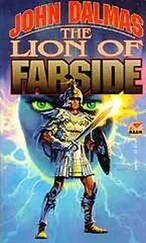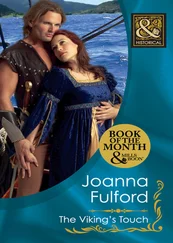Slowly, slowly, he went back up the hall with hands outstretched and thinking of all the girls. He saw the hat tree’s shadow, passed the love seat and the staircase, empty now, and thought, she’s gone off looking at her half a crown. Good thing.
He took a breath then and blinking through the smoke, rubbing his lips and blinking, holding Annie’s gin bottle halfway to his lips and then forgetting it, found Larry towering in the parlor and Little Dora shouting up at him. Dora was wearing the jockey’s striped racing cap and the long flat tongue of the visor protruded sideways from her trembling head.
“Take it off,” she shouted, “let’s see what you got!”
Sparrow, Jimmy Needles and the rest were crowded round them, laughing and showing their teeth through smoke and the white light of lamps with the shades ripped off now. But Larry towered, even while Dora caught him by the shirt, and there was the perfect nose, the black hair plastered into place, the brass knuckles shining on the enormous hand, and the eyes, the eyes devoid of irises. Tomorrow he would wear green glasses. For now he was drunk, drunk into a stupor of civility and strength, that state of brutal calm, and only a little trickle of sweat behind the ear betrayed his drunkenness.
“Come on, come on, you full-of-grace,” pushing up against him, tearing the shirt, “let’s see what you got!”
The pearl buttons came off the shirt and Banks stepped no closer, though Sybilline was there and laughing on one of Larry’s arms. “Oh, do what Little Dora says,” he heard her cry, “I want you to!” And there was a bruise, a fresh nasty bruise, beneath Syb’s eye.
It was not a smile nor look of tolerance, but some wing-tip shadow — he was cock of this house — that passed across his face and Banks thought Larry had swayed. Yet he removed the wrinkled coat, allowed Sybilline to pull the holster strings, ungird him, allowed Little Dora to flap against him and rip off the shirt and, after Sparrow had undone the ties, once more waited while Dora took the undervest away in her claws. They cheered, slapping the oxen arms, slapping the flesh, and cheered when the metal vest was returned to him — steel and skin — and the holster was settled again but in an armpit naked now and smelling of scented freshener.
Larry turned slowly round so they could see, and there was the gun’s blue butt, the dazzling links of steel, the hairless and swarthy torso of the man himself. In the process of revolving he looked at Sparrow, who went out then to the hired vehicle parked before the boarding house.
“For twenty years,” shouted Dora again through smoke opaque as ice, “for twenty years I’ve admired that! Does anybody blame me?” Banks listened and amidst breaking glass, the tumbling of the mauve-colored chairs, for a moment met the eyes of Sybilline, his Syb, eyes in a lovely face pressed hard against the smoothest portion of Larry’s arm which — her face with auburn hair was just below his shoulder — could take the punches. Banks looked away.
He left the gin bottle on a bolster and sprawled out shivering on the love seat. They were finished with the final stanza of poor Needles’ song. He could very nearly taste the dawn, the face peering up out of a basin, becoming old again, his full and wasting twenty-five. But he listened, reached forward through the dark and then the shadow was in front of him, Dora’s bit of beard and a glimpse of the fibrous and speckled hams, and he would have laughed except for the last jump inside of him.
“Got a cigarette,” he asked her softly, and started trembling.
He was alone, finally, all alone and sore and the cartwheeling sheets were piled in a white heap on the planking off the foot of the bed. The last of them was gone; love’s moonlight was no longer coming through the glass; but there was light, the first gray negative light of dawn. The mate of the oven tit had found a branch outside his window and he heard its damp scratching and its talk. Even two oven tits may be snared and separated in such a dawn. He listened, turned his head under the shadows, and reflected that the little bird was fagged. And he could feel the wet light rising round all the broken doors, the slatted crevices, rising round the fens, the dripping petrol pump, up the calves and thighs of the public and deserted visions of the naked man — the fire put out in the steam-bath alley, the kitchen fire drowned, himself fagged and tasteless as the bird on the sick bough. But a sound reached him and for a while he followed it: “Cowles … Mr. Cowles? Mr. Cowles?” The widow’s voice faded down in the direction of the barren pantry and open door.
He let it go. He smelled the pillow touched by too many heads, smelled the dry sweat of a night no more demanding — gone the pale rectangle from which he had plucked the stocking, gone all the fun of it. He thought of water against his lips but he could not move, stretched upon his back and caught. But he must have moved his leg because suddenly he felt it pricked, a sharp little pain in the skin, some bit of foreign matter. He reached down slowly and took it in two fingers, raised it high before his face: a single pearl on a pin that had been bent, but a lovely rose color in the center where it held the light. Idly he began to turn the pearl between his fingers. The hand hovered, fell, and he lost the pearl for good.
The shot went off just below his window. It was a noise in the very room with him, like a hand clapped upon his ear, and he thought of Jimmy Needles, the shoulder holster on the silver breast, thought of Sybilline and the widow. Then he was out of the bed, across the room and running.
He reached the street before the gunshot sound had died, ran into the dawn bareheaded and in time to see the warbler flying straight up from the thick brown tree with its song turned into a high and piping whistle. There were the frozen headlamps and black dripping tires of a double-decker parked across the street; a cottage with a hound clamoring inside; a poster showing bunched horses on a turn; an empty cart drawn back from the road. And at the corner of the boarding house, sprawled on the stones, the body of a child in a bright-green dress and, crouched over it, the puffing constable. A wet and sluggish sun was burning far-off beyond the wet foliage and crooked roofs.
He stopped — arms flung wide — then ran at the constable.
Because he recognized the child — she had always been coming over a bridge for him — and because now there was smoke still circling out of the belly, smoke and a little blood, and she lay with one knee raised, with palms turned up. And the old man crouching with drawn gun, touching the body to see where his shot had gone, old man with a star of burst veins in the hollow of either cheek, with his warts, the old lips that were ventricles in the enormous face, with brass and serge and a helmet like a pot on the head — there was nothing he could do but smash his fist against that puffing face. He did, and sent the helmet rolling.
The mists were drifting off, the leaves uncurling, the helmet was rattling about the street. And he kept driving the man, fighting the constable farther and farther away from the dead child, watching one of the mournful and unsuspecting eyes turn green and slowly close. Scuffling, panting himself, trying to take his punches with care, aiming at the blood that had started between the two front teeth. Then suddenly the constable — old, with a neck of cow’s kidneys tied round by the high blue collar, and a nose that hooted in the struggle — gave it all back to him, blow for telling blow, finding his mark, punching in with the slobber and vehemence of his age. There was a straight look in his watering good eye, a quick and heavy hunching in the shoulders. His long hair, black and mixed with gray, went flying.
Читать дальше












